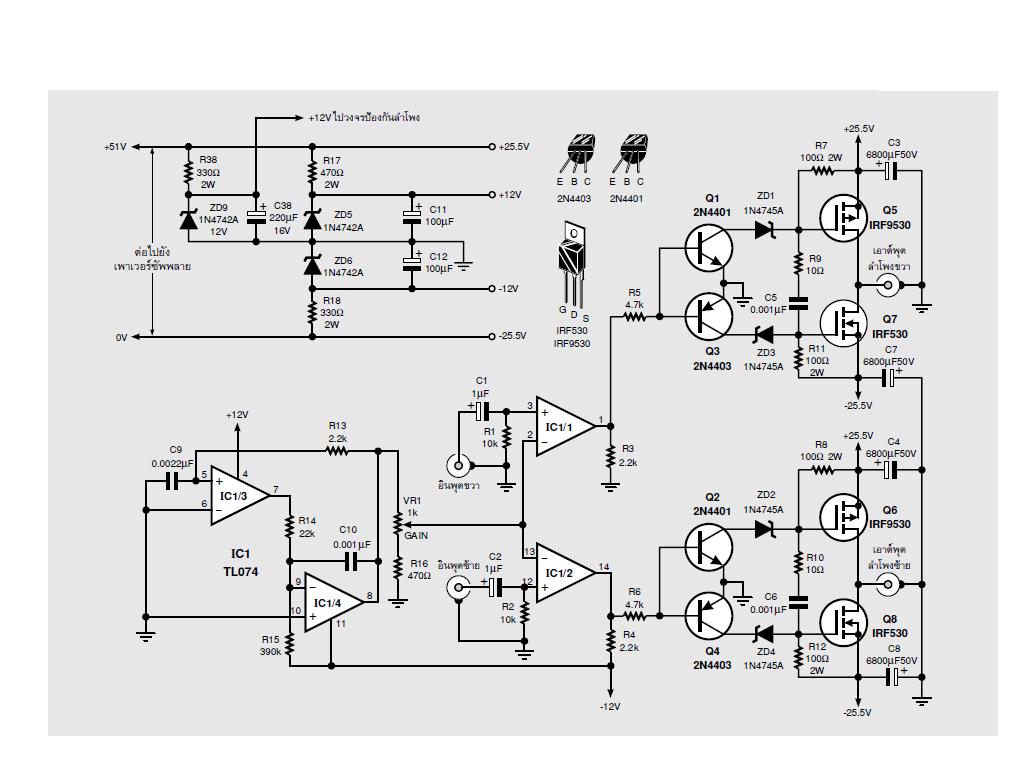

This process seems digital but is in fact analog in nature. The amplified PWM waveform is low pass filtered to recover the audio waveform and eliminate spurious ultrasonic noise before outputting it to the speakers. A linear amplifier's output stages, by comparison, see a continuous waveform and, to avoid distortion, are on for more than half the waveform (Class A/B) or for the complete waveform (Class A), thus greatly reducing efficiency and generating heat. The PWM signal is then amplified by an output stage operating in switch mode, which is to say there are two states, on or off, at very high speed, corresponding to the PWM pulses. In its most basic form, a comparator circuit is used to match the input signal with the PWM signal. Bravo! So, more about the music.A Class D amp works by taking the analog input signal and creating a PWM (pulse width modulation) replica of it-essentially a train of pulses, which correspond to the amplitude and frequency of the input signal.
CLASS D POWER AMPLIFIER FULL
They easily made Frank Sinatra’s 1952 “Only The Lonely” ballads sound powerful, full of life, and emotionally gripping. But don’t interpret this comment to mean that these amps are boring or that they lack excitement. Overall impression is incredibly smoooth and enjoyable. Excellent inner detail and ambience recovery and decay without exaggeration. Excellent imaging and deep wide soundstage. Timbres and harmonic structures were accurate and balanced. I put the pen down and was struck by the involved and yet relaxed presentation. The first telling thing I can say is that despite my analytical intentions of writing detailed notes, I instead found myself immediately drawn into the music.

We do not accept most accessories, phono cartridges, power cables, or interconnects. We do not accept broken or non-functioning product. Additionally, all trade-in gear must have respectable cosmetic condition. We require that all trade-in gear is functioning.

What’s component-level mean? Component-level refers to any high-quality stereo product such as a preamplifier, power amplifier, DAC, phono stage, loudspeaker pair, turntable, headphones, or CD transport. We ask for component-level product in trade. We will accept nearly any HiFi make and model. You will have 30-Days to return the trade-in. We will also email you an RMA with an RMA Number, which you can write on the box or shipping label, which you can use to return your unit. Once you receive an order confirmation from us via email, your trade-in proposal has been accepted. We will authenticate the original retail manufacturer price value of your trade-in, and we will call or email you if we see any discrepancies. The PS Audio Sales Team will review all trade-in claims within 48-hours. Upon check-out, we will only charge you the Adjusted Retail Price. PS Audio offers full, original retail manufacturer price value back as an immediate credit towards your new purchase. On the product page, simply press the Trade-in and Save button on selected products and complete the trade-in information as requested on the Trade-in Form.


 0 kommentar(er)
0 kommentar(er)
